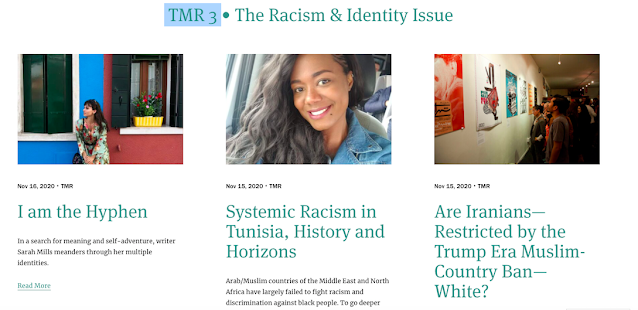By Melissa Chemam
“I am all the things I give myself permission to be,” poet, performer and educator
Tolu Agbelusi told me, toward the end of our Zoom conversation about her beautiful
poetry debut, Locating Strongwoman. The book is an attempt at defining oneself as
a woman, beyond stereotypes and with incredible authenticity. “All my life, I was
always in the margins,” she added, I always felt in between, I couldn’t be pigeon-
holed by anyone and I don’t need to be.” An experience that her poem ‘What Exactly
Do You Want To Know’ addresses.
Born in Nigeria, raised in Britain from 14 years old, trained as a lawyer in France,
Tolu also lived in the Caribbean and in Angola and is now based in London. “I’ve
often felt like people put others in boxes and in my case it was not to include me,
as a Black woman for instance, but to exclude me.” She was even told that she
wasn’t African enough after some live shows. Yet these experiences only helped
her to define who she wanted to be.
Growing up in Nigeria, her mother was an English teacher, so Tolu was always
exposed to books. And poetry became a way for her to cultivate her inner world,
especially when they moved to England and she was preparing for her A Levels.
“Then I used to write as a way to escape. I created a personal world not to be
discovered by anyone. For my A Level in French, I chose to study a poem on
‘negritude’ by Aimé Césaire: it had a huge impact on me. So had books like
Daughters of Africa by Margaret Busby and poems by Maya Angelou.”
She started studying English at university and was writing so much that at 21 years
old, she did her first poetry performance, at Poetry in Motion in London. Then she
left for Paris to pursue a law degree and started working. “Poetry found me again when I was unemployed and depressed. Soon, I thought it was more than just a
hobby and I started to take much more time to write but also to read like a writer.
It became a necessity for me: the more I did it, the more I felt good at it.” It also
became a means to empower herself and others. “Language is power,” Tolu said,
“I now teach poetry too and use performance as a tool to express myself.”
Her poems also address a lot of taboos, and Tolu does feel that – whether in
England, France or Nigeria – certain conversations are very difficult to have,
about identity, femininity and togetherness, because some people are not expecting
her to speak about race, gender or relationships as freely as she does. “I definitely
had to break a few doors down. I spent a lot of nights going to poetry events,
waiting for flyers about the next events, dragging my friends who didn’t even like
poetry for support. And after many open mic events, people started to ask me to
come again. But of course, I still face barriers, in bigger events, in certain
institutions. That’s also why I created my own events, the Home Sessions.”
The poems that we find in Locating Strongwoman were created over all these years
of writing and performing, plunging into her emotional self. “I’m a storyteller,”
Tolu added. “Some of these stories are my stories; others are inspired by people I
know or read about, but together they form a character that I am, sometimes
powerful, other times not that strong, but all these emotions are true.” She
beautifully addresses motherhood, family links, love but also consent, pain and silence. The poem ‘How It Begins’ was for instance inspired by her experience in
French Guiana, during a sexual assault. “They all reflect different levels of strength,
Tolu reflected. “There are the multiple versions of me, because no one is ever one
thing only.” And her whole book beautifully illustrates this experience, as I’m sure
many readers - like myself - will delightfully find out.










